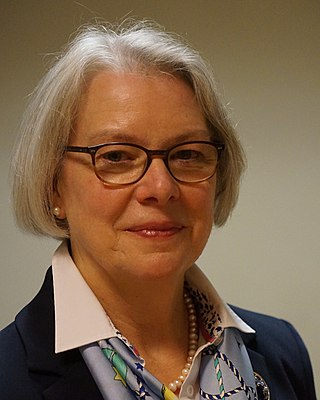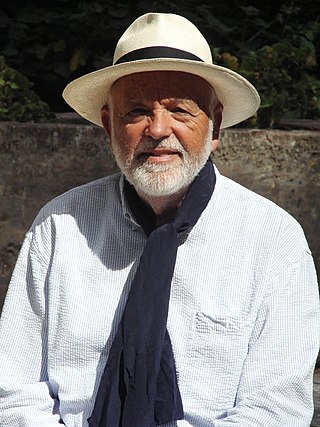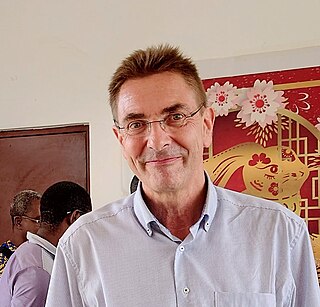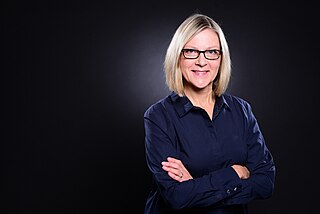
The Johannes Gutenberg University Mainz is a public research university in Mainz, Rhineland Palatinate, Germany. It is named after the printer Johannes Gutenberg since 1946. As of 2018, it had approximately 32,000 students enrolled in around 100 academic programs. The university is organized into 11 faculties.
The Bolgo language is a member of the Bua languages spoken in south-central Chad, in the villages of Koya, Boli, Gagne, and Bedi southeast of Melfi, by about 1,800 people. Speakers also make up the majority of the population of Sorki canton in Chinguil sub-prefecture.

The Gottfried Wilhelm Leibniz Prize, or Leibniz Prize, is awarded by the German Research Foundation to "exceptional scientists and academics for their outstanding achievements in the field of research". Since 1986, up to ten prizes have been awarded annually to individuals or research groups working at a research institution in Germany or at a German research institution abroad. It is considered the most important research award in Germany.
The Leibniz Institute of European History (IEG) in Mainz, Germany, is an independent, public research institute that carries out and promotes historical research on the foundations of Europe in the early and late Modern period. Though autonomous in nature, the IEG has close connections to the Johannes Gutenberg University Mainz. In 2012, it joined the Leibniz Association.

Susanne Schröter is a contemporary Social Anthropologist focussing primarily on Islam, Gender and Conflict Studies.
Kulung is a Bantu language spoken in Nigeria.
Richard Walter Rottenburg is an Anthropologist of Science and Technology and Professor at Wits Institute for Social and Economic Research, University of the Witwatersrand.

Irene Dingel is a German historian and a Protestant theologian.
mainzed is a joint initiative of six scientific institutions to promote digital methodology in the humanities and cultural sciences in Mainz, Germany. It was founded in the context of the academic annual celebration of the Academy of Sciences and Literature Mainz on 6 November 2015. Partners of mainzed are the Academy of Sciences and Literature Mainz (ADW), the Mainz University of Applied Sciences, the Institute for Historical Regional Studies at the University of Mainz (IGL), the Johannes Gutenberg University Mainz (JGU), the Leibniz Institute of European History Mainz (IEG) and the Romano-Germanic Central Museum Mainz – Archaeological research institute (RGZM).

Johanna Barbara Stachel is a German nuclear physicist. She is a professor in experimental physics at the University of Heidelberg. Stachel is a former president of the German Physical Society (DPG).
Babina is a 2000 Ghanaian film written by screenwriters Leila Afua Djansi and Ashangbor Akwetey Kanyi. The film tells a story about a conflict between a witch called Babina, who was sent to the world to destroy the life of man, and the men of God who oppose her. It is an African horror film. Babina is played by actress Kalsoume Sinare.
Jürgen Oldenstein is a German provincial Roman archaeologist.
Daniela Philippi is a German musicologist with a research focus on Christoph Willibald Gluck, Antonín Dvořák and Czech music history and music of the 20th century.
Norbert Cyffer is a German-Austrian linguist and Professor Emeritus of African Studies at the University of Vienna. Cyffer is primarily interested in African languages and linguistics, particularly the Saharan languages of the Sahelian region. His research areas include morphology, syntax, language contact, sociolinguistics, typology, and applied linguistics.
Thomas Bierschenk is a German ethnologist and sociologist. He is Professor of African Cultures and Societies at the Institute for Anthropology and African Studies at the University of Mainz.

Gerd Spittler is a German ethnologist.

Erdmute Alber is a German ethnologist with research focus in political and kinship anthropology. Since 2010 she has held the chair in Social Anthropology at the University of Bayreuth.

Gerhard Grohs was a German sociologist and African studies scholar. He was one of the pioneers of African Studies in Germany, Professor of Sociology at the Free University of Berlin (1969-75) and at the University of Mainz (1975-94).

Hans Peter Hahn is a German ethnologist, member of the board of the Vereinigung für Afrikawissenschaften in Deutschland and program officer of the 'Franco-German Master of Arts : Ethnology and its German-French perspectives'.

Katja Werthmann is a German ethnologist with a regional focus on West Africa. She is a professor for 'Society, politics and economy of Africa' at the Institute for African Studies at the University of Leipzig. K. Werthmann conducts research in Anglophone and Francophone Africa on the handling of material and symbolic resources in the context of spatial and social mobility in contemporary Africa. She has made contributions to political, economic, religious and urban ethnology. After the Doctorate at the Freie Universität Berlin and the Habilitation at the Johannes Gutenberg University Mainz she taught at universities in Germany, Switzerland (Zürich) and Sweden (Uppsala). Since 2012 she has been a university professor at the University of Leipzig.










